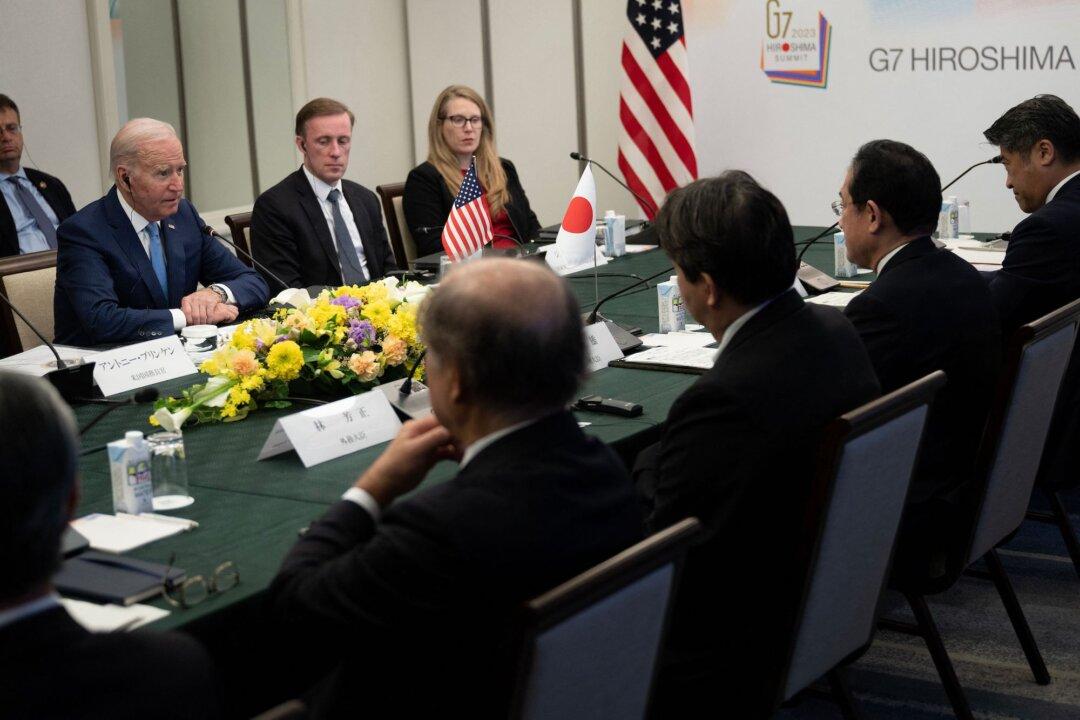HIROSHIMA, Japan—President Joe Biden has addressed U.S. debt limit concerns at the G-7 Summit in Japan, seeking to assure world leaders of his capability to navigate negotiations and prevent a historic default on the United States debt, according to U.S. national security adviser Jake Sullivan.
On Saturday morning local time in Hiroshima, Biden received an update from his team on Capitol Hill about the progress of budget negotiations. Taking questions alongside Australian Prime Minister Anthony Albanese, Biden expressed confidence the White House and House Republicans will reach a deal.






